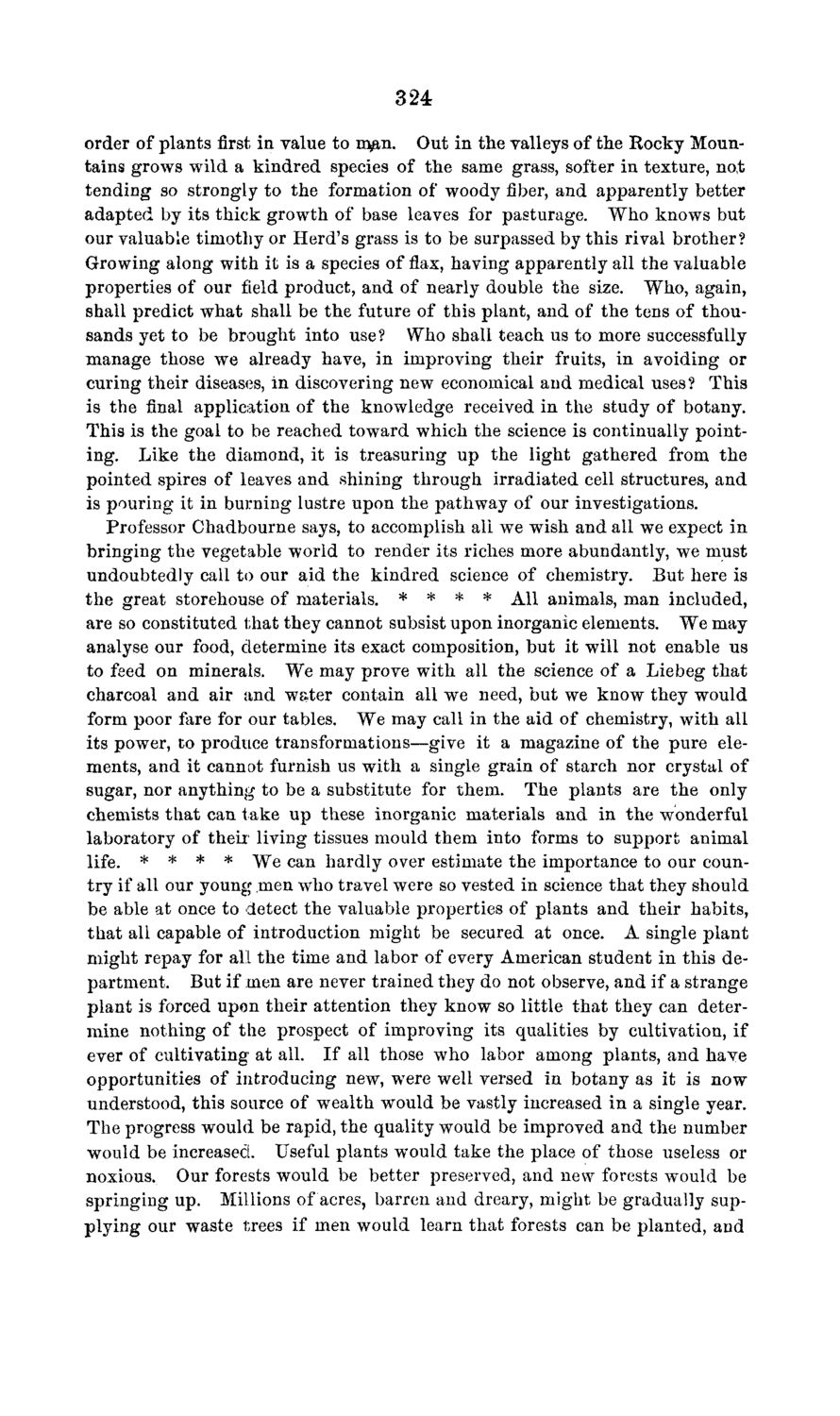| |
| |
Caption: Board of Trustees Minutes - 1869
This is a reduced-resolution page image for fast online browsing.

EXTRACTED TEXT FROM PAGE:
324 order of plants first in value to n>an. Out in the valleys of the Rocky Mountains grows wild a kindred species of the same grass, softer in texture, no(t tending so strongly to the formation of woody fiber, and apparently better adapted by its thick growth of base leaves for pasturage. Who knows but our valuable timothy or Herd's grass is to be surpassed by this rival brother? Growing along with it is a species of flax, having apparently all the valuable properties of our field product, and of nearly double the size. Who, again, shall predict what shall be the future of this plant, and of the tens of thousands yet to be brought into use? Who shall teach us to more successfully manage those we already have, in improving their fruits, in avoiding or curing their diseases, in discovering new economical and medical uses ? This is the final application of the knowledge received in the study of botany. This is the goal to be reached toward which the science is continually pointing. Like the diamond, it is treasuring up the light gathered from the pointed spires of leaves and shining through irradiated cell structures, and is pouring it in burning lustre upon the pathway of our investigations. Professor Chadbourne says, to accomplish all we wish and all we expect in bringing the vegetable world to render its riches more abundantly, we must undoubtedly call to our aid the kindred science of chemistry. But here is the great storehouse of materials. * * * * All animals, man included, are so constituted that they cannot subsist upon inorganic elements. We may analyse our food, determine its exact composition, but it will not enable us to feed on minerals. We may prove with all the science of a Liebeg t h a t charcoal and air and water contain all we need, but we know they would form poor fare for our tables. We may call in the aid of chemistry, with all its power, to produce transformations—give it a magazine of the pure elements, and it cannot furnish us with a single grain of starch nor crystal of sugar, nor anything to be a substitute for them. The plants are t h e only chemists t h a t can take up these inorganic materials and in the wonderful laboratory of their living tissues mould them into forms to support animal life. * * * * We can hardly over estimate the importance to our country if all our young .men who travel were so vested in science that they should be able at once to detect the valuable properties of plants and their habits, that ali capable of introduction might be secured at once. A single plant might repay for all the time and labor of every American student in this department. But if men are never trained they do not observe, and if a strange plant is forced upon their attention they know so little that they can determine nothing of the prospect of improving its qualities by cultivation, if ever of cultivating at all. If all those who labor among plants, and have opportunities of introducing new, were well versed in botany as it is now understood, this source of wealth would be vastly increased in a single year. The progress would be rapid, the quality would be improved and the number would be increased. Useful plants would take the place of those useless or noxious. Our forests would be better preserved, and new forests would be springing up. Millions of acres, barren and dreary, might be gradually supplying our waste trees if men would learn that forests can be planted, and
| |